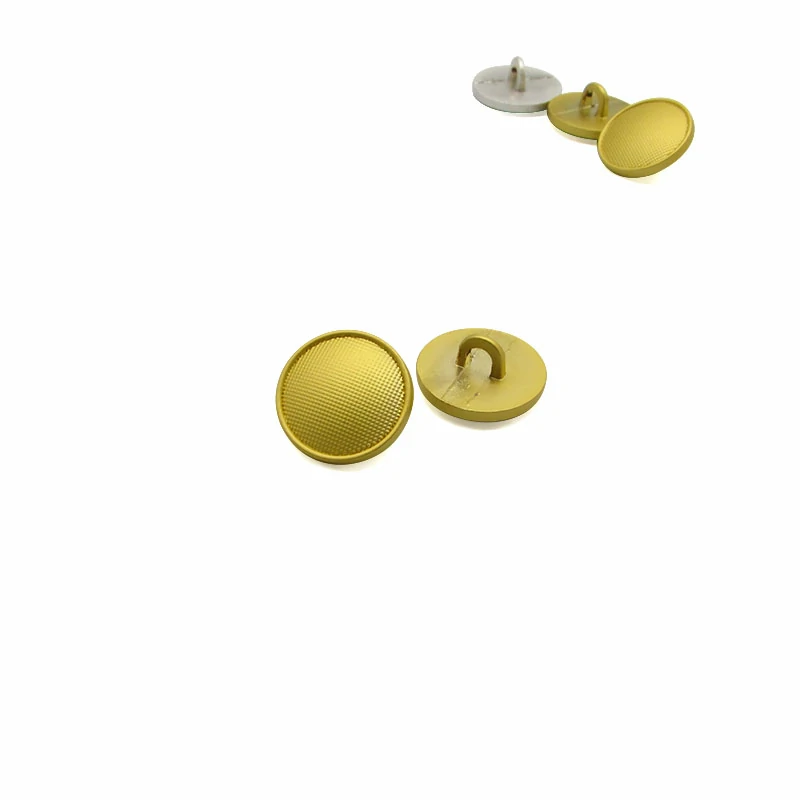There are several brands and manufacturers known for producing durable and high-quality suit shank buttons.
Here are a few reputable options to consider:
Waterbury Button Company: Waterbury Button Company is a well-established manufacturer that has been producing buttons since 1812. They offer a wide range of buttons, including suit shank buttons, known for their durability and craftsmanship.
JHB Buttons: JHB Buttons is a renowned brand that specializes in producing high-quality buttons for various applications, including formal wear. They are known for their attention to detail, durability, and stylish designs.
Dill Buttons: Dill Buttons is a trusted brand that offers a diverse selection of buttons, including suit shank buttons. They are known for their quality construction, durability, and a wide range of styles and finishes.
Blumenthal Lansing: Blumenthal Lansing is a well-known button manufacturer that produces buttons for various industries, including fashion and apparel. They offer a range of suit shank buttons in different sizes, styles, and finishes.
La Mode Buttons: La Mode Buttons is a reputable brand that offers a variety of buttons, including suit shank buttons. 15mm Gold Silver Suit Shank Button They are known for their quality materials, attention to detail, and fashionable designs.
When selecting suit shank buttons, it’s important to consider both the durability and aesthetic appeal. Look for buttons made from sturdy materials, such as metal or high-quality plastic, with a secure shank attachment. Additionally, consider the design, finish, and color of the buttons to ensure they complement your garment and personal style.
You can find buttons from these brands at fabric stores, sewing supply shops, or online retailers specializing in buttons and garment accessories.
Are there any specific factors to consider when selecting the size of suit shank buttons?
When selecting the size of suit shank buttons, there are a few factors to consider to ensure they are proportionate and suitable for your garment.
Here are some factors to keep in mind:
Garment Type: Consider the type of garment you are working with. Different garments have different button size conventions. For example, suit jackets and blazers typically use larger buttons compared to dress shirts or lightweight fabrics. Consider the weight, structure, and style of the garment to determine the appropriate button size.
Buttonhole Size: Evaluate the size of the buttonholes on your garment. The button should fit comfortably through the buttonhole without being too loose or too tight. Ensure that the diameter of the button is appropriate for the size of the buttonhole. Ideally, the button should pass through the buttonhole with a bit of resistance but not be excessively tight.
Proportion and Aesthetics: Consider the overall proportion and aesthetics of the garment. Larger buttons can create a bold and statement look, while smaller buttons can provide a more delicate and refined appearance. Choose a button size that complements the style, design, and intended look of the garment.
Personal Preference: Personal preference and style also play a role in button size selection. Some individuals prefer larger buttons for a more contemporary or fashion-forward look, while others may prefer smaller buttons for a classic or understated aesthetic. Consider your personal style and the desired visual impact when making your decision.
Try Samples: If possible, obtain sample buttons in different sizes and physically place them on the garment or fabric to assess the visual impact. This can help you visualize how the buttons will look and determine which size works best for your specific garment.
It’s worth noting that industry standards and personal preferences can vary, so there’s no strict rule regarding button sizes. Ultimately, the choice of button size should be based on the specific garment, its design, and your personal taste.
